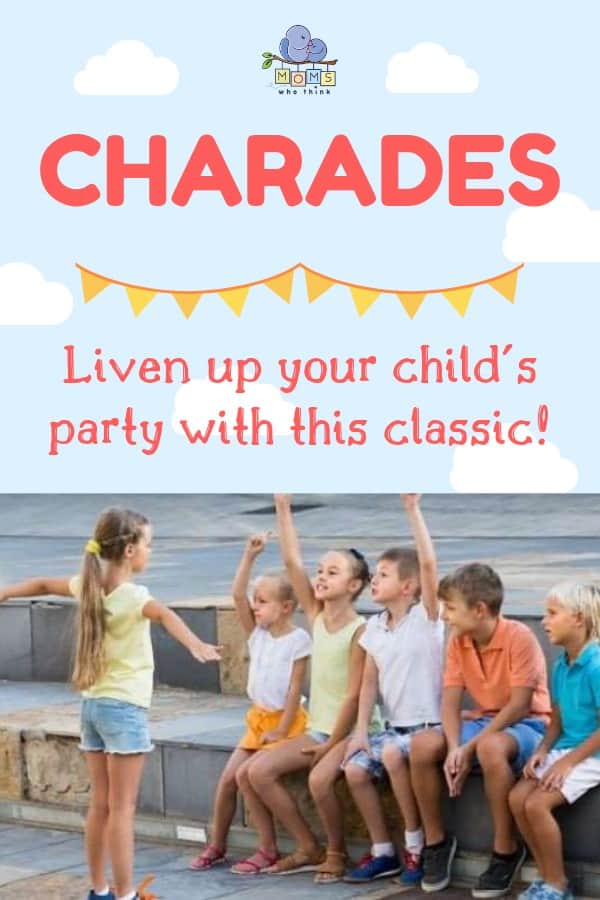Liven up your child’s party with this classic!
Because most kids love to have the spotlight focus squarely on them, this birthday party game is a natural hit for children of most ages. A word to the wise – charades are best for younger children. Tweens today will probably find this game to be fairly lame and social circles are growing outside of your influence and no one wants to look like a ‘fool'. The traditional rules and mode of play will need to be tweaked a bit, but it is a snap!
Items needed/prep:
There is a bit more legwork to play with younger children but it is worth it. Basic items needed are simple: a timer, paper for scorekeeping, blank slips of paper and pencils, and a container for the papers.
Ages appropriate
Kids as young as three can play. However, ten-year-olds will probably be the upper limit of who will find this game to be fun.
Object of play
One player silently acts out a word or phrase for the others to guess. Simple right? Divide into equal teams. Only one team goes at a time. The actor must be completely silent, with no words. This is difficult for younger kids and they may need to be reminded. Just be sure to be gentle about the rule.
There is a set time limit of 90-120 seconds, depending on clue difficulty. The team must guess the correct answer in that time or play move. The other team only has the chance to steal if the clues are secret.
Variations
For young children (3-4 years old) it is not necessary to divide them into teams. The thrill of the game is enough without the added challenge of competition. Keep them all on the same team and just have them take turns being the actor.
It is also best to have simple phrases, one word is best. If you are having a themed party select words from your theme that the children would not only know but be able to act. For example, an Outer-Space-themed party the children will know what an alien is, but will they be able to act it out? Words like the moon, space suit, or rocket might be better choices. However, kids can connect a surprising amount of ideas so you don't need to limit yourself too much.
For younger kids, a time limit is not necessary. Just let them act it out. At least one child will be able to guess if the clues are simple enough.
8-10-year-olds will enjoy picking their own themes. This is great because it means less work for you. After you divide into teams give each team slips of blank paper and a pencil. Then they create the phrases, movie, or book titles that their opposing team will act out. Just remember that with the advent of the internet, there may be some more blue or crude words teams will pick even at that young of an age.
A word of quality control here, to insure clues that are clean and not impossibly hard, you may want to have a chaperone approve them. Or better yet just set some ground rules that exclude crude words or gestures, no foreign words and at least three members of the team have to know what the phrase is before they can write it down.
A review of the basic gestures is always helpful:
Book: Hold hands like a book
Movie: crank an old-fashioned movie camera
Play title: pull the rope to open the curtain
Song: pretend to sing
TV show: draw a rectangle in the air to make a TV
Quote or Phrase: Make quotation marks in the air
Number of words in the clue: Hold up the number of fingers.
Which word you're acting: Hold up the number of fingers again.

©BearFotos/Shutterstock.com
The image featured at the top of this post is ©BearFotos/Shutterstock.com.
